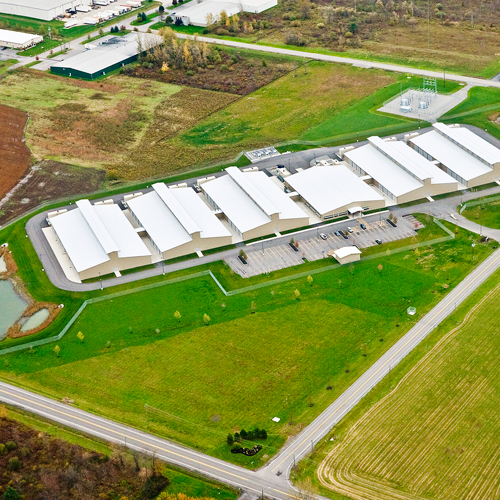 Founded in 2001, Orange County, California-based PlanNet has, for more than a decade, maintained a sterling reputation as a high-quality technology-consulting firm. It originally focused mostly on low-voltage physical infrastructure, but early in its development, at the request of clients, it also developed world-class IT and data-center strategy capabilities.
Founded in 2001, Orange County, California-based PlanNet has, for more than a decade, maintained a sterling reputation as a high-quality technology-consulting firm. It originally focused mostly on low-voltage physical infrastructure, but early in its development, at the request of clients, it also developed world-class IT and data-center strategy capabilities.
It was in 2012, though, after Dan McNary joined the company, that things really began to take off when he added engineering and construction capabilities to the mix. “Before, PlanNet would develop a data-center strategy then work with the client to source an engineer and contractor to handle the data-center construction for them,” McNary says. “We knew we could improve on that process and ensure that the technology needs of the business would be clearly translated to the physical data center. So, now we execute the strategy and construction ourselves as a design-builder—no handoffs.”
McNary came to PlanNet after 25 years climbing his way up at a number of companies, including Bechtel Corporation and Syska Hennessy Group. Today, as president of PlanNet Design & Construction, Inc., his responsibilities are varied. He leads sales and marketing activities, finds and develops new talent, and meets with customers to discuss their needs. By shepherding PlanNet’s team of builders, he has helped them find footing in a post-recession economy, which has in turn grown PlanNet’s business significantly over the past few years.
PlanNet’s integrated, experienced team of in-house experts separates it from the competition. “We have seasoned senior people across the board—IT strategists, technology strategists, telecommunications engineers, MEP [mechanical, electrical, and plumbing] engineers, and constructors,” McNary says. “Throughout my career, I have focused on nurturing my team and attracting the best technical talent possible. I feel really fortunate to have been able to have the core of that team come with me to PlanNet. Now, we put a lot of effort into mentoring and coaching our young engineers and project managers.”

A big challenge in today’s construction industry is finding and developing the best talent to properly execute projects, and the recession is largely to blame. “Data centers are highly technical projects, with electrical and mechanical systems representing some 80 percent of the total project cost,” McNary says. During the economic downturn, many companies held on to their capital and postponed investment in their data centers, and the lack of construction led to widespread layoffs in the building industry. “A lot of potential engineers and constructors still in school looked forward and decided that construction might not hold the brightest future,” McNary says. “Now there’s a hole in the industry in young engineers and construction managers. There is and will be a battle for great engineering and construction talent now and in the future.”
With the improvement of the economy, though, PlanNet began seeing a significant increase in building activity as businesses once again started to invest in their data centers. Not long after, the company added engineering and construction to its service offerings, and it saw a return on the investment almost immediately. “Companies soon realized that by enhancing their data centers and IT systems, they were enhancing their business,” McNary says. “The first full year after we began offering engineering and construction services, the company essentially doubled its revenue and expanded its customer base and increased our staff by 20 percent.”
Since then, PlanNet has worked on a number of major projects. “We were asked by the Southern California Gas Company to initially assist as a strategist and engineering consultant to develop a detailed strategy for the enhancement of their data-center portfolio,” McNary says. “One key center in the Los Angeles area required mechanical and electrical upgrades to meet their current business and IT needs. We had to plan and construct significant modifications to the MEP systems while the data center was live and 100 percent operational. As their trusted partner, it was natural for us to execute the project in a design-build format, ensuring that their IT needs could be translated to the engineered systems. Their MEP systems are now more efficient, the data center is more reliable, and it meets their current IT needs.”
And, PlanNet is now working as part of the team for Microsoft’s massive data center in the United States. According to McNary, “We support our partner as a construction manager [and] owner’s representative as well as supporting Microsoft’s quality-assurance team.”
With the completion of that project and others on the horizon, the future of PlanNet looks bright. “We’re a relatively new company,” McNary says. “We will continue to expand and grow into larger jobs and portfolio-type clients…I love growing things—new businesses and business units—helping customers with challenging problems, and developing a high-performing team to help them.”


